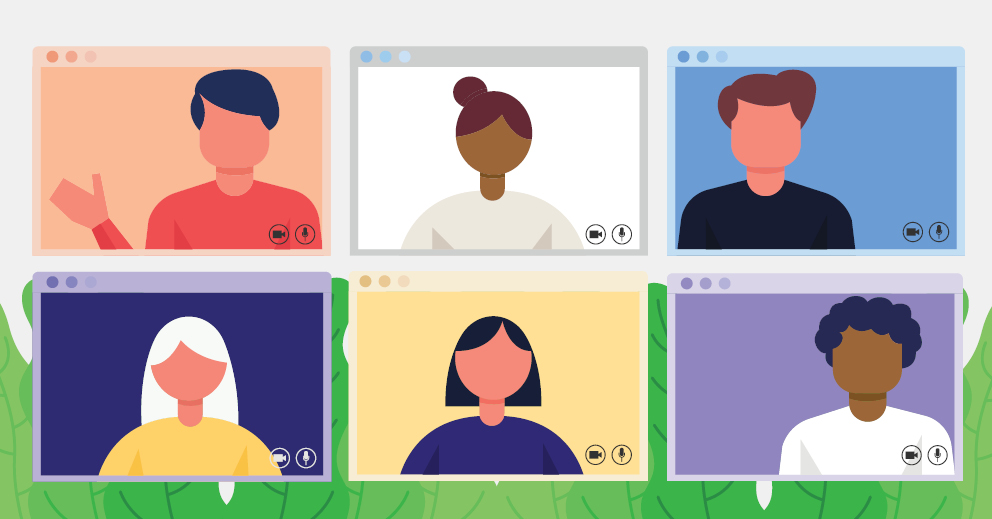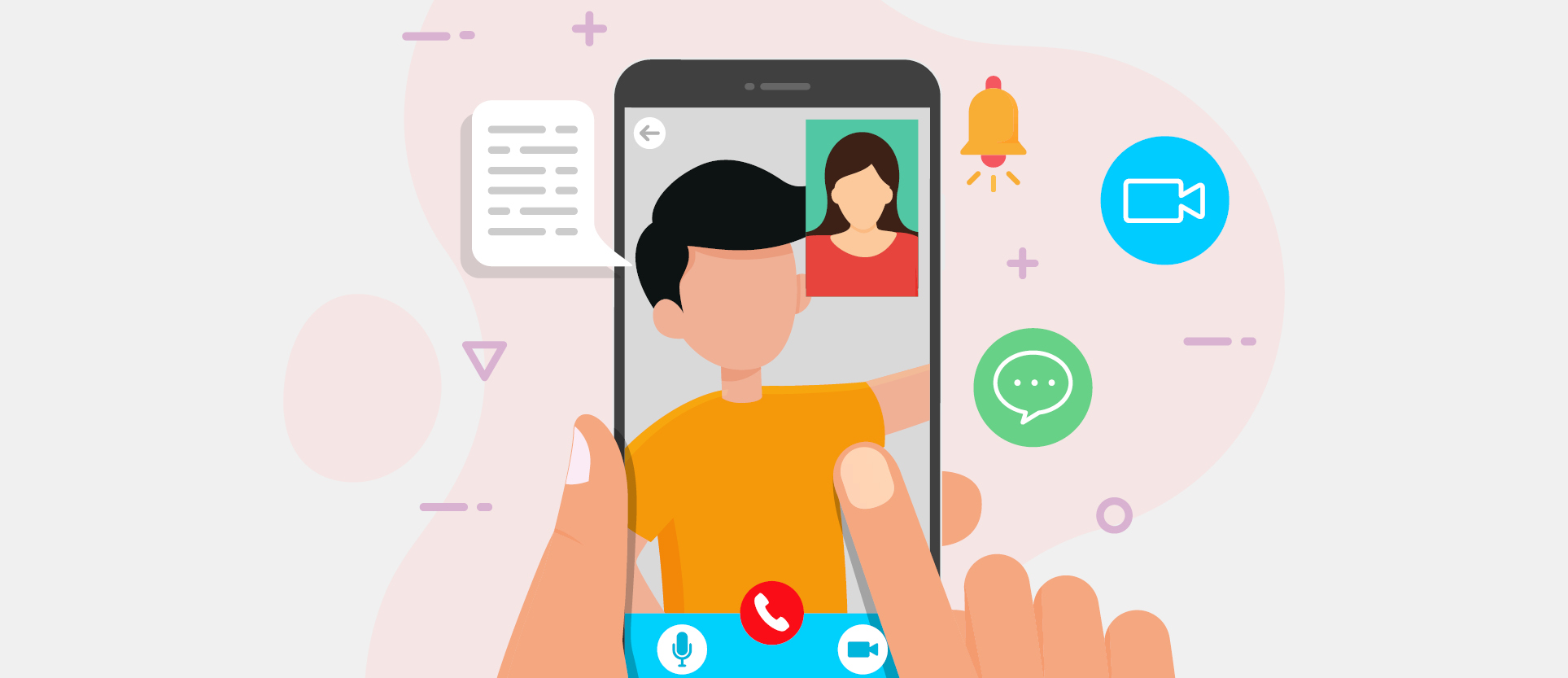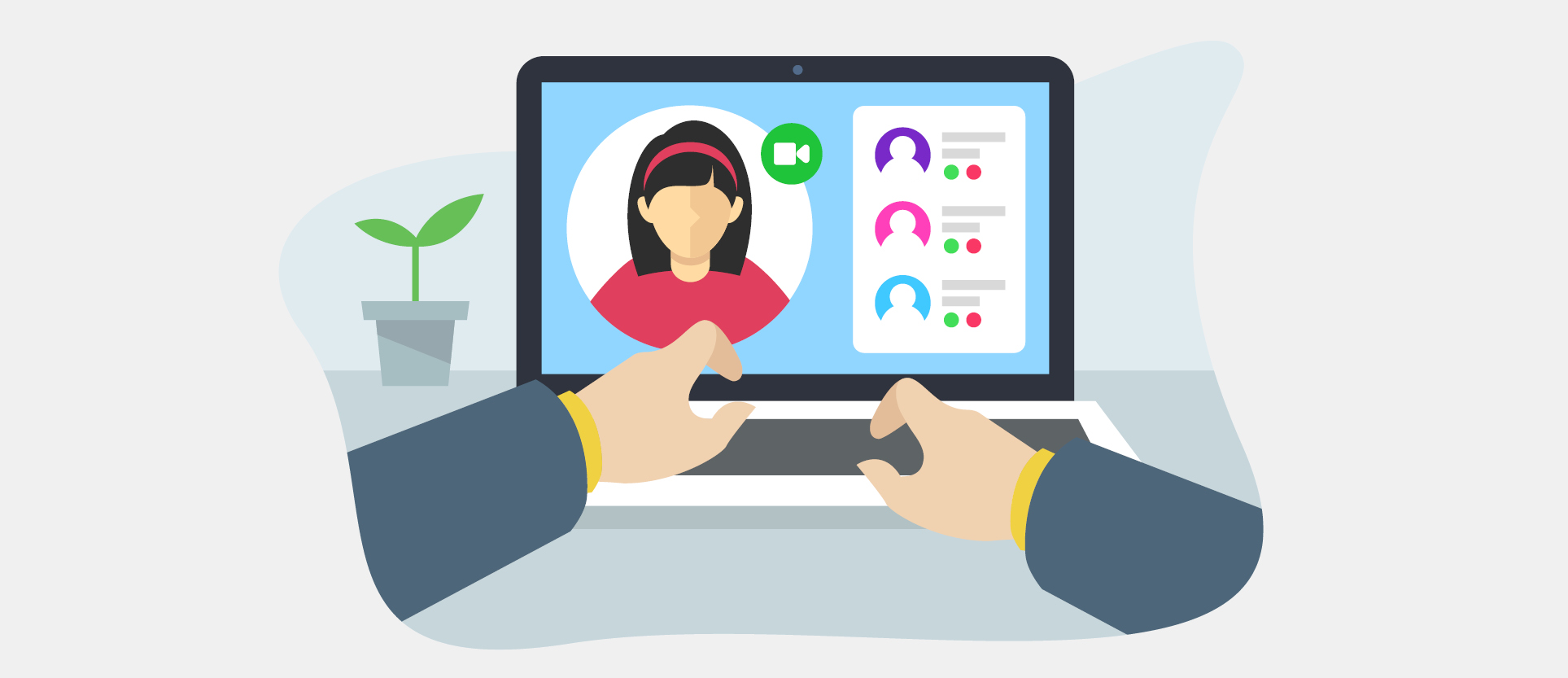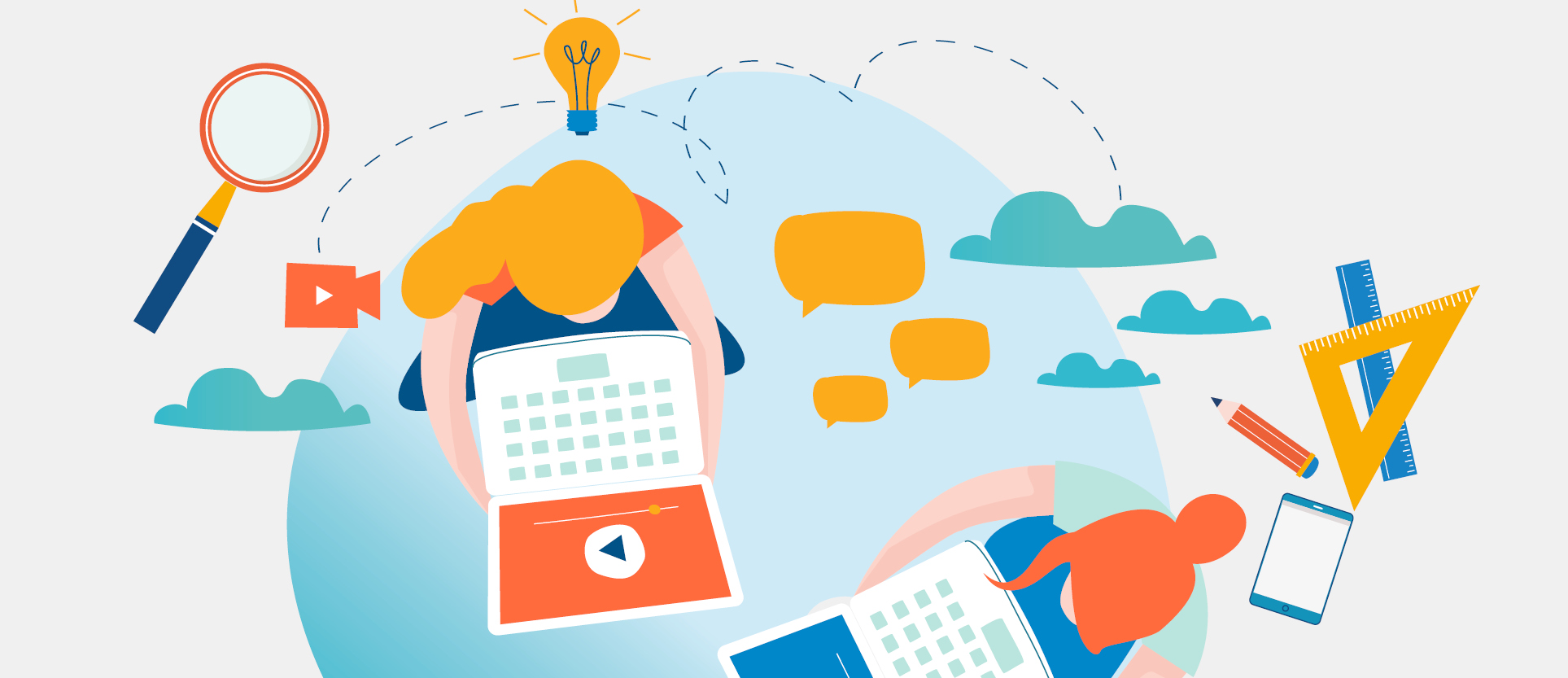It’s not all Zoom and Gloom: How to Cope with Video Call Fatigue and Anxiety
Posted: 10 November 2020 at 11:55 am | Author: CAW Business School
Microsoft Teams, Zoom, Google Hangouts, FaceTime – for many of us, working and studying from home during the COVID-19 pandemic has meant video call apps have become essential tools in our lives, allowing us to attend classes and stay in touch with classmates, colleagues, friends and family.
Video calling has made it possible for us to continue to study, learn, work and communicate in innovative ways. However, it doesn’t come without its challenges…
On a video call we need to work much harder to process the nonverbal signals we can interpret effortlessly face-to-face. Not only this, we need to place more energy into conveying our interests, feelings and enthusiasm.
For some, these novel pressures to “perform” socially or in a school/work setting via video conference can lead to feelings of video call fatigue, burnout or anxiety. If you’re struggling with video calling, you’re not alone. Here, we’re discussing some of the ways you can overcome these feelings to ensure you make the most of your online interactions – whether you’re attending an online class, a work meeting or a catch up with your friends. Let’s make a start:
Suss out the technology
Technology has created innovative ways for us to stay in contact; however, the frustrations that come with setting up and holding video calls can sometimes cause video call fatigue, anxiety or discomfort. For example, people turning their microphones on and off, lagging connections, and background noise mean meetings don’t always run smoothly.
You can avoid these frustrations by making sure you have a strong and consistent internet connection. You should also make an effort to really understand the technology you’re using and the features available to improve your experience. By doing this, you’ll also avoid rookie errors that come with online communication, such as sharing the incorrect screen to your teachers/classmates, or accidentally sending the wrong message into a group chat.
Make use of pre-made backgrounds
Many video calling applications such as Microsoft Teams offer lots of fun patterns and landscapes that you can place to block out your background on camera.
This light-hearted feature can be a simple fix to many of the novel anxieties that come with going to classes or meeting your colleagues from home. For example, you won’t need to worry about your remote workspace and showing something that makes you look bad to our colleagues or classmates. Equally, there will be no need to fret about your kids or family members bursting into the room at any moment and distracting the call.
Get comfortable with being on camera
For people who worry about their appearance or behaviour on camera, being forced to look at your own face on screen for a whole class or meeting can increase video call fatigue or anxiety.
To minimise this feeling, you could hide self-view once you’ve turned on your camera and checked your lighting is ok. Others will see you, but (as in real-life) you won’t constantly be reminded of that fact. This can help you to feel less self-conscious.
If you’re shy on camera, there are ways you can try to get used to it in small doses. For example, you could turn on your camera when you join a meeting so others can see you and “know” you’re there, and then turn it off. Some people prefer to turn their camera off when they’re not speaking, but turn it back on when they are. If you’re a student, it’s also worth having a conversation with your teacher or lecturer, as they’ll be able to provide you with some extra support and guidance.
In these days of increased isolation, it’s important to remember being on camera is one of the few ways we can physically see each other, and a key way for the people that care for us (teachers, friends, family) to see that we are ok.
Mix up your communication methods
Limiting the number of video calls you make in one day can help reduce fatigue. Whilst some video calls are essential and everyone needs to show up if they are expected to be present (for example, a group class, lecture or seminar) there may be other instances where you can communicate in other ways. In this respect, it is worth having a think about where you can opt for other forms of communication, and have those conversations to see if this is possible. For example, sometimes using a shared document platform to make detailed collaborative notes can reduce the need to meet. Additionally, you could use instant messenger, email or speak on the phone instead.
Apply face-to-face meeting rules to boost efficiency and reduce fatigue and anxiety
The COVID-19 pandemic may have put a halt to face-to-face meetings for a while, but that doesn’t mean we can’t bring the principles of regular meetings and classes into our video calls. Take note of these snippets of advice:
Be prepared for your video call
Preparing in advance can help you feel more confident on the day. You could do this by writing down some things to say to questions you think might come up, having some notes you can rely upon if you need them, or even perhaps rehearsing what you’re going to say.
Practice methods for controlling anxiety in the moment
Combat video call fatigue and anxiety in the moment by using positive self talk such as “I can do this” “I know what I’m talking about” and focusing on your breathing to calm down.
Have meetings with purpose
Video calls drag on when there is no understanding of what you need to accomplish. For any calls you hold, make sure you identify a clear purpose for the meeting. You should also secure an agenda of what you’ll cover. This way, the calls will be more efficient and productive.
Scheduling short calls is ok
It’s much better to have a 10-15 minute call where all participants are positively engaged, rather than spend an hour on a call with people who are clearly distracted or uncomfortable. In this sense, sometimes a quick catch up may suffice!
Schedule breaks
Having back-to-back video calls means you have no time for a mental, visual, or physical break. Think back to in-person meetings. Even when they’re back-to-back, you usually have small breaks to grab a drink or switch rooms. You need those same breaks to reenergize when working remotely too.
Reach out to others and talk about your worries, and seek extra help and support if you need it
It’s a universal truth that a burden shared is a burden halved. We’re all doing our best to adapt to new ways of communicating. It’s likely that the other people in your classes or meetings may be going through similar experiences, feelings and worries. There’s a lot of comfort to be found in simply airing your troubles to others. This way, you can talk about how you can overcome shared problems together.
We’re living in unprecedented times, and mental health has never been more important. It’s ok to reach out for further help and support if you need it. There are so many people, organisations, services and resources out there to help you cope during difficult times.
If it’s available to you, you should consider seeing your GP or mental health professional for extra help. You could also ask your mental health professional if they could chat over Skype/FaceTime if you’re in self-isolation.
Further mental health support at The College of Animal Welfare
If you’re a student or staff member with us, and you’re struggling with video call fatigue or anxiety, please don’t hesitate to reach out to your teacher, head of course or line manager – they are there to help and support you. We also offer lots of additional mental health support that you can access free of charge:
Togetherall
All staff and students can now access free online mental health and wellbeing support through Togetherall. This service can be used at any time of the day or night, all year round.
Togetherall can help you get support and learn useful coping strategies to improve mental health and wellbeing. The service enables members to get things off their chest in a safe, anonymous global community. You can access a library of self-care resources and trained professionals are online 24/7 to provide extra support.
The college will not be informed of those who are signed up to Togetherall or activity on the service unless they are seriously concerned about safety whilst on campus. To join, go to the Togetherall website and sign up under ‘I’m from a university or college’ using a staff or student e-mail address.
College counselling services
In addition to this, we offer confidential counselling services, with free sessions for students on an ongoing basis. The college is not made aware of any appointments made. The College counsellors are still available via phone, email or video conference:
- Jill Dighton | Tel: 07925 852 985 | Email: jill@jdighton.co.uk
- Mark Walsh | Tel: 07905 611 591 | Email: mwalsh4@sky.com
Mental health resources
- Mental Health Foundation – Looking after your mental health during the Coronavirus outbreak
- Mind – Coronavirus and your wellbeing
- Mental Health England – Supporting your mental health while working from home
- Samaritans – If you’re worried about your mental health during the coronavirus outbreak
- Vetlife– Mental health support and financial assistance for the veterinary community including veterinary nurses and students
- Living Wellarea on CAW VLE





